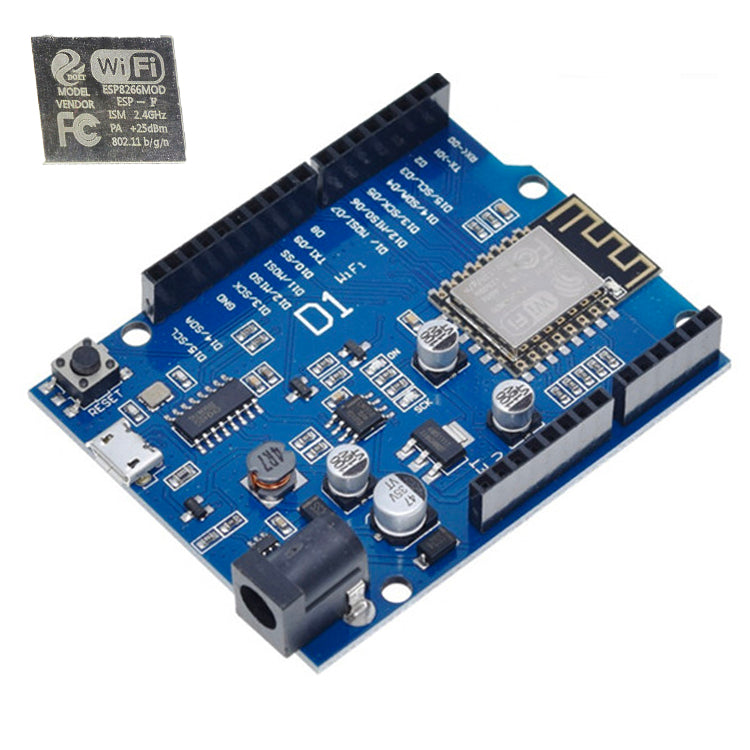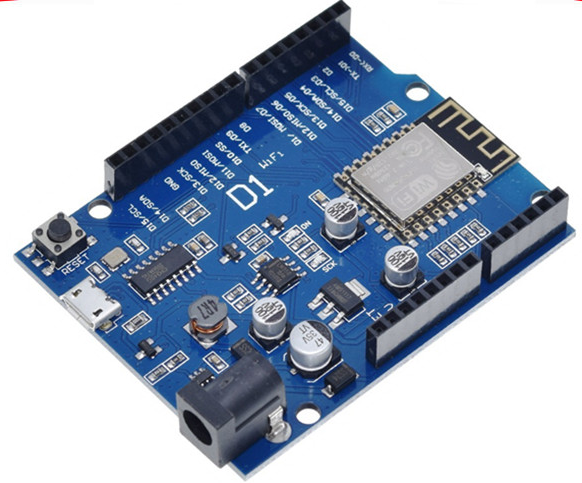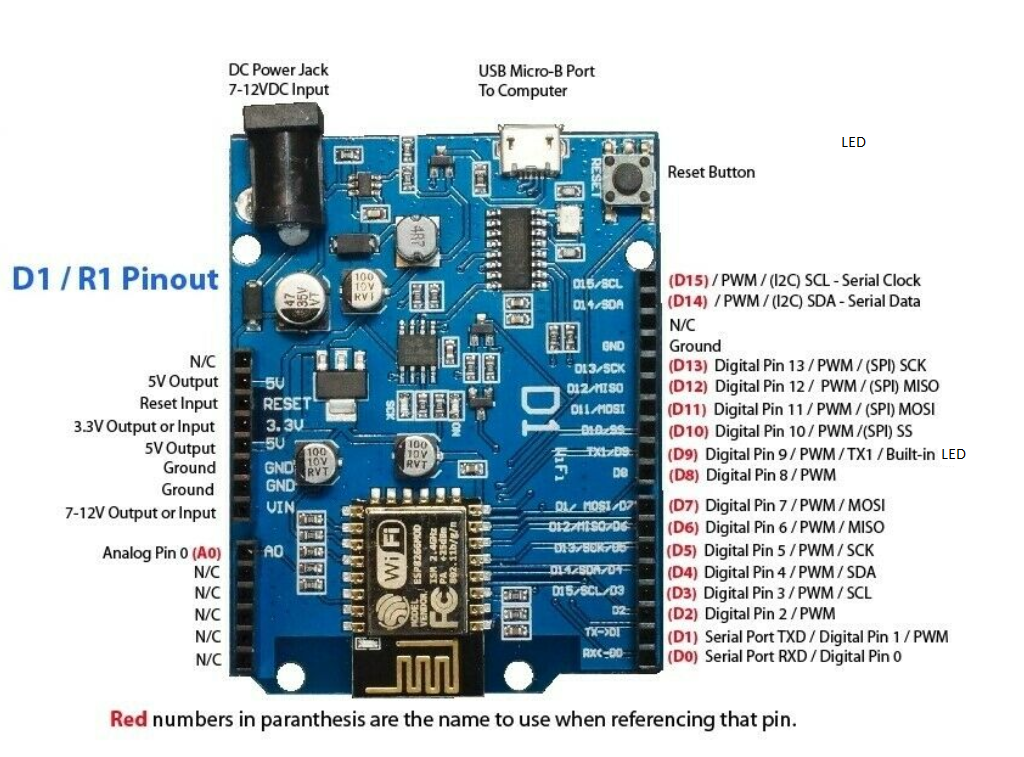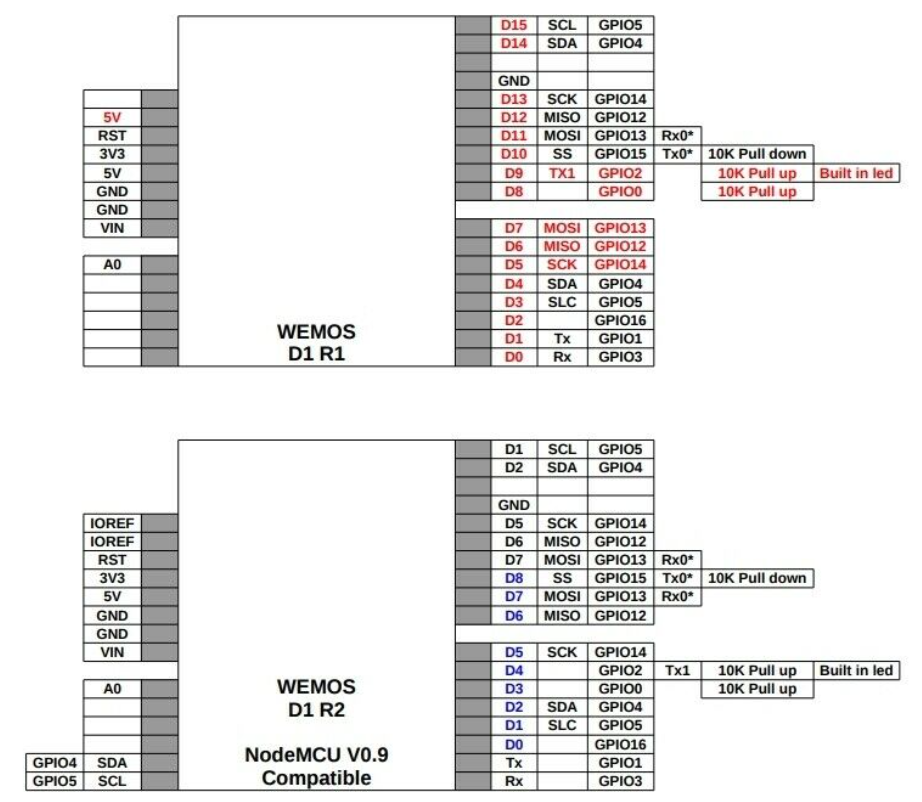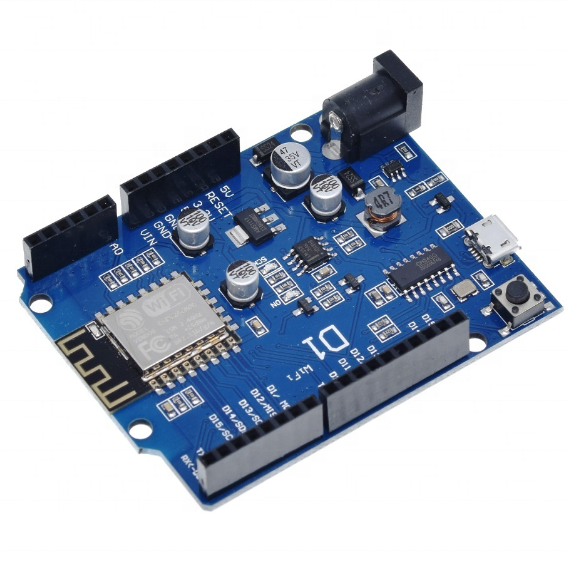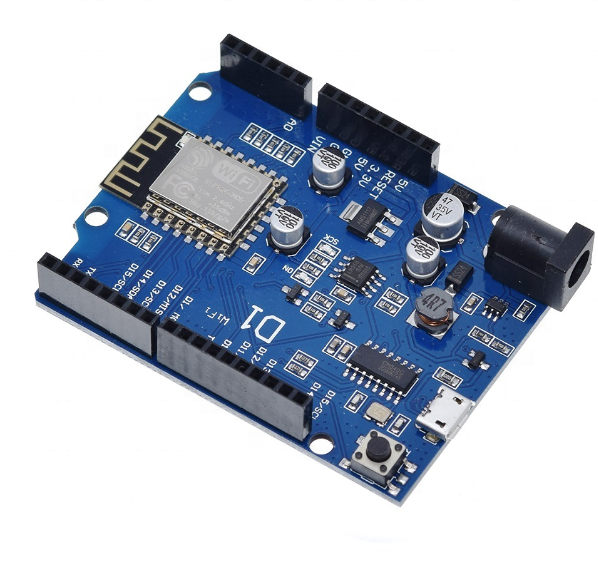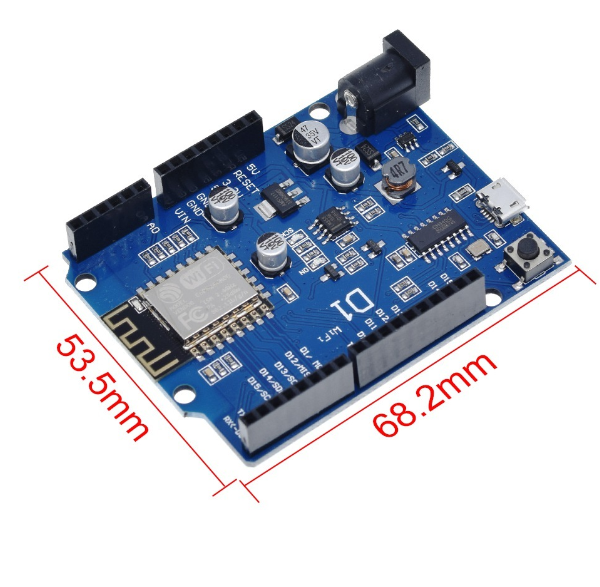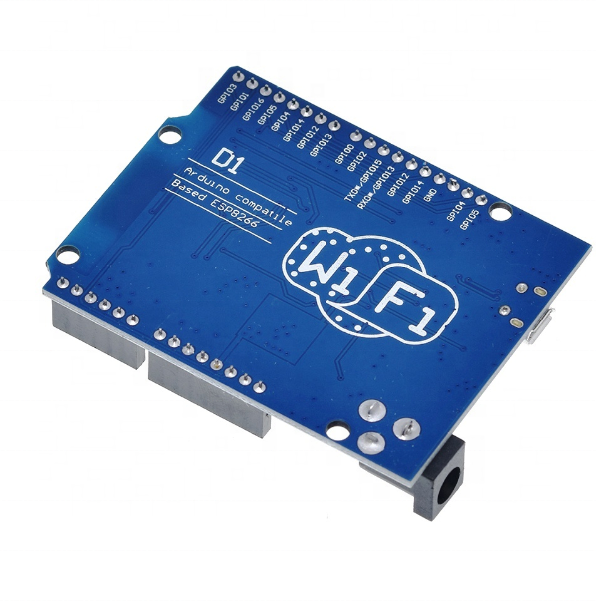BoardsAndSensors.com
OTA D1 CH340 WiFi ESP8266 ESP-12F Board WeMos Compatible with Arduino UNO R3 IDE
OTA D1 CH340 WiFi ESP8266 ESP-12F Board WeMos Compatible with Arduino UNO R3 IDE
Couldn't load pickup availability
The ESP8266-D1 is a wireless 802.11 (Wi-Fi) microcontroller development board compatible with the Arduino IDE. It turns the very popular ESP8266 wireless (Wi-Fi) module into a fully-fledged development board. The Atmel ESP8266 is the heart of the board acting not only as the Wi-Fi chip but also as the main processor!
The layout of this board is based on a standard Arduino hardware design with similar proportions to the Arduino Uno and Leonardo. It also includes a set of standard Arduino headers which means many existing Arduino shields can be plugged directly into the board.
The WeMOS D1 board build is just like Arduino UNO and as such you do not need Arduino UNO. To work with this board using board manager you can convert this board to Arduino and then use the Arduino IDE for programming.
The development board also includes a CH340 USB to serial interface giving it the ability to be connected and programmed directly from your computer and requiring only a common micro-USB cable – no additional interface hardware or configuring is required. Once connected to the computer, and drivers have been installed, the ESP8266-D1 will appear as a standard serial COM port. The ESP8266-D1 can be programmed directly from the Arduino Integrated Development Environment (IDE) which is freely available for download from the Arduino website (arduino.cc). This board is also compatible with MicroPython and NodeMCU.
Direct Arduino IDE support for this development board can be added with just a few mouse clicks via the built-in board manager feature. Programming the ESP8266-D1 via the IDE is then as straight-forward as programming any standard Arduino development board. Many of the default Arduino commands will work including digital and analogue pin functions and many examples are included in the IDE which demonstrate how to take advantage of the ESP8266s Wi-Fi capabilities. These examples range from simply blinking an LED to turning the ESP8266-D1 into a stand-alone web server.
Specs:
- Integrated ESP8266 module with 32-bit 80MHz microcontroller/4M flash
- 64Kb of instruction RAM and 96Kb of data RAM
- 16 GPIO pins
- 11 digital IO, interrupt/PWM/I2C/one-wire supported (except D0)
- 1 analog input(3.2V max input)
- micro-USB serial/programming interface
- Can be powered via USB cable – no external Power Supply required
- Arduino Compatible headers
- Directly supported by the Arduino IDE
- 2.1mm external DC PSU socket (6.5 - 12V)
- 802.11 b/g/n
- Integrated low power 32-bit MCU
- Integrated 10-bit ADC
- Integrated TCP/IP protocol stack
- Integrated TR switch, balun, LNA, power amplifier and matching network
- Integrated PLL, regulators, and power management units
- Supports antenna diversity
- WiFi 2.4 GHz, support WPA/WPA2
- Support STA/AP/STA+AP operation modes
- Support Smart Link Function for both Android and iOS devices
- SDIO 2.0, (H) SPI, UART, I2C, I2S, IR Remote Control, PWM, GPIO
- STBC, 1x1 MIMO, 2x1 MIMO
- A-MPDU & A-MSDU aggregation & 0.4s guard interval
- Deep sleep power <10uA, Power down leakage current < 5uA
- Wake up and transmit packets in < 2ms
- Standby power consumption of < 1.0mW (DTIM3)
- +20 dBm output power in 802.11b mode
- Operating temperature range -40C ~ 125C
- FCC, CE, TELEC, WiFi Alliance, and SRRC certified
Materials
Materials
Shipping & Returns
Shipping & Returns
Dimensions
Dimensions
Care Instructions
Care Instructions
